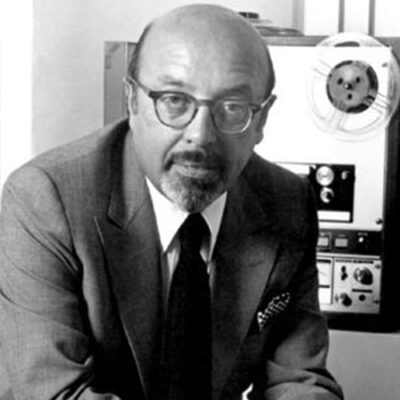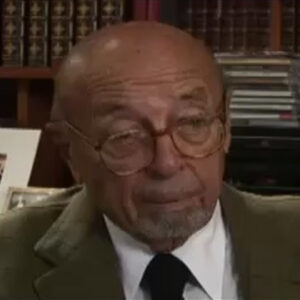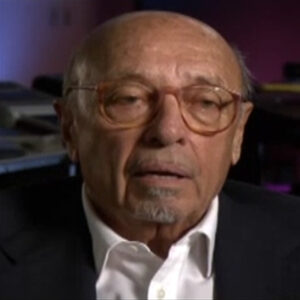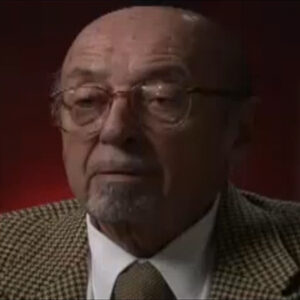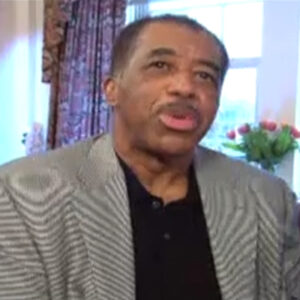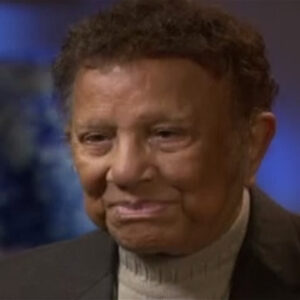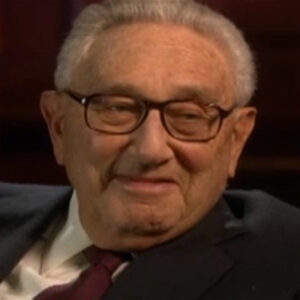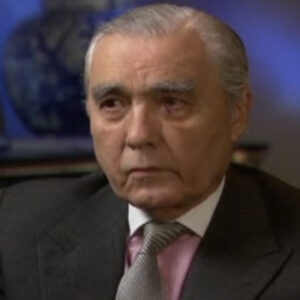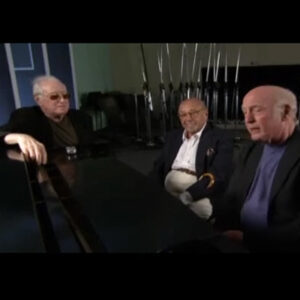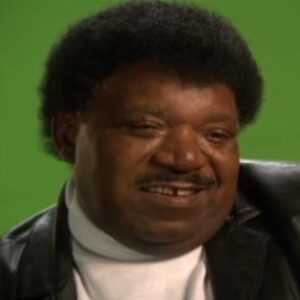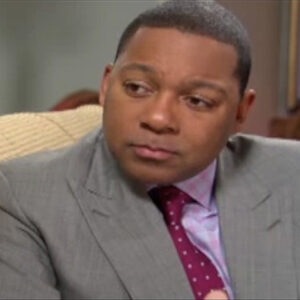M4 Well, I was one of a a small circle of dedicated jazz degenerates, we loved New Orleans music. That’s how it started with Louis Armstrong and Sidney Bouchet, Bessie Smith and so on. And then on up through the swing era and with the bands, the Fletcher Henderson’s and the Jimmy Lunsford on up to bebop, Charlie Parker and so on. I think maybe I’m a case of Arrested Development because Lester Young is where I get my mail for Fatema Sax. But I thought we were a group of people very small.
M20 We all know each other.
M4 And strangely, almost impossibly, most of us got into the record business. Actually, it’s as though some some nerds from a Nick Hornby film suddenly became record people instead of just, you know, spending all that time in shops looking for old numbers. The articles, of course, Ahmed Natsui, George Avakian, Bob Thiele, Alfred Lion. I could go on Milt Gabler, who ran the Commodore Record Shop. Milt wound up as the director of an for Decca Records for decades, as well as promulgating the legendary Commodore label which insisted the greatest music of its time. But people like George Brauneis read Alan Pewee. Russell, I don’t know how much resonance these names are going to have when this thing goes on the air, but these are the immortals. So we were dedicated to this.
M20 And I think if you had asked any of us who we were, what our nature was, what how we would describe ourselves.
M4 Well, Ahmet and I would say that the son of the Turkish ambassador and they’ve lived in and in the diplomatic quarters all over Europe and here, and George Avakian would say, well, his parents came from Armenia and I should say he was in the drug business. Stumpy Lyon, who founded Bluenose. I don’t know why they would. But what I’m getting at is our identity was we were record collectors. It was the dominant ethos, the.
M8 Oh, shit. Hang on a minute. I’ll take you. Where is it? I don’t know. Over here, you just had privacy. Is that ringing there? Yeah. So this was all right that there’s something on the wall, OK, to back just his privacy.
M4 Did he find it? Yeah, that should be the last one.
F3 I think we turned everything else off or we upon what I thought I heard upstairs as well.
F8 What? Tighten the belt tighter. Tighter.
M2 We can keep going.
F4 So I have a nice cut. Yeah, I don’t get that. OK, that’s good. Good. Actually cut off that ear along the bottom just like that. Yeah. Going to be cut off.
M4 Yeah I like that. OK, tell me when you’re rolling. Can you look at me. Huh. Yeah. We’re rolling. OK, record collecting. We used to collect these records. We still find them in old Salvation Army depots. These were all seventy-eight in basements. We used to go into low. I’ll be charitable and just say they were low rent neighborhoods and we go into basements that had bad dog signs. We would venture just to find some dusty old records. When we got these records, we took them home and played them, clean them up and some of them would in fact yield what we are looking for. A King Oliver rarity. Louis Armstrong had five. Then we would get together and play these records for each other. I don’t know if people do that anymore, but it was a pastime. Playing music that’s spending a whole evening playing records on somebody would drag out a treasure. Somebody would drag out his. We also congregated at the clubs where this music was played, both in the village, a place like Eddie Condon’s Nicks and Uptown. We’ve got the Savoy Ballroom. We go to the clubs uptown, Fifty Second Street or the Street, as it was known, which had I don’t know how many nightclubs cheek by jowl, one after another. The famous door, the Onyx Club. And one of the drawbacks is that some of us weren’t working and didn’t have the funds to pursue this. So no one would go to Nick’s or the Onyx Club, stand at the bar, a glass of beer all night. And I’ve been known to hide in the back of the stage at Cafe Society downtown with a bit afraid lest somebody discover me. So we love this music. We collected it, we played it, and we went to the venues where we could be heard.
M3 Of course, the music that we want to hear was contemporary, but it was in the genre at that time. This was pre bop, it was almost pre swing, so it was relegated to the status of antiquarian music brought up to date. So we all know each other. We all hung out and we went to each other’s houses. We went out to restaurants and I remember there was a restaurant, 50 Second Street for four fifty five cents. You could get a great meal with scallops and a veal and a bottle of wine. And so we may do it was improvising during the Depression and finding a way of indulging our passion. As far as work is concerned or gainful employment, it’s all a blur to me. I don’t know who got along a while. And so that’s how we all met. And as I say, they went on to become record people and also record producers, not just the entrepreneurs. We had the brass band balls to imagine when we heard this record. Well, I could do that. I can do it. I could make a better record than that. And of course, when the deal came down and we got into the into the position, we had to learn it from the get go what it was all about. But as I say, so many of us wound up actually in the record business and producing records. Was the first record you ever produced. Say again, what was the first record you ever produced? The first record I co-produced with Ahmed was and Laverne Baker record called Soul on Fire. And How can you leave a man like this? And we co-wrote the songs with absolutely no bona fides. I was thrown into the mix and I’m called. Writing a song with Ahmed and our arranger, Jesse Stone, and I don’t know how much I contributed to that record because my first time in the studio, I think I was Pruden kept my mouth shut, my ears open, did it was at the studio being the office that was sort of that was. Yeah, that was 234 West 56 Street over Patsy’s restaurant and the various offices. There were so many because we had a small step. But Ahmed and I shared a major office, which was the largest from up there and which became the recording room we had. We each had a desk, can’t talk to each other. We worked together and when a session came along, we would move the desks to the wall, put one desk on top of the other, and Tom Dowd, loving and belated wonderful engineer, would set up folding chairs or camp chairs and a microphone and maybe put a mic out in the stairwell for Echo. And our control room was a very narrow little space where we used to store out samples and it was so narrow that if three people were working on the record, two would stand, a two would sit, one would stand. But in this improvised studio, we made records like one and I say shake, rattle and roll many, many of our heads that this was all in the 50s before 1960.
F1 What do you think of the comment? I read something very funny that you said about writing the writing mess around and all it.
M4 Ormat had written many songs before mess around because he began writing songs for the Clover’s and it was, as the French say, folk to me there was nothing else around. And he locked up a signature form, which instead of a double repeating the blues, he made a triple repeat. So it became a 16 bar form instead of a 12 form, but was really a knock off on the blues.
M3 Such songs such as Fool, Fool, Fool and So On and Up and Mess Around was based on Buck Dance by Crepeau Clarence Lofton, which, if you want, could have a listen to that record or the other one.
M16 I forget his name and it had this changes with a backbeat on every championship, that bar.
M3 So and Ahmed just took that format and put the words the mess around to it. And then you’ve probably heard the little treasure where Ahmed is teaching, right? Well, that’s in the movie, as a matter of fact. And tell it again. Well, there’s Ahmed teaching Ray Charles song MSRA. First of all, he sanctorum the musical form. And of course, Ray picked up on that right away. And then Ahmed sang the lyrics to Ray, and that’s how I learned it on the road. Other songs like Don’t Play That Song, which he did with Benny King and I did with Aretha Franklin, songs like Lovey Dovey, which is really a knockoff from the old blues with the line. If you don’t like My Peaches, Don’t Shake My Tree.
M14 And he wrote songs called Music Publishers didn’t have any songs for this genre.
M3 And if a singer came in and was not provided, didn’t provide his own material, the material had to be confect that somehow some songs were written on the back of greasy paper bags, you know, or on envelopes and confected in the moment. And we got by. Occasionally a specialist songwriter would materialize. There was a man named Rudy Corms already, Toombs, who wrote some great songs for Ruth Brown and other people. Unfortunately, he was terminated in a murder uptown. There were a few people. Jesse Stone, our arranger, was a wonderful songwriter. He wrote Shake, Rattle and Roll and many, many others because. He was a gifted musician and also he had a sense of the street and he had also had a sense of the inner city. So he had the job and he had the lingo. He had the rhythm. He had the cadence, the right. All these wonderful songs, you know, speaking of chagrin, are going out of order.
F1 But that doesn’t really matter much. I had a couple of things that came to my mind, as you were if you were talking. One was shake, rattle and roll the recording session. Yeah. Understand that you were in the chorus.
M3 I was white. You were in that voice cause chorus on the chorus. Oh, well, yeah. I just, you know, took to fortify the chorus and that every time we came to the hook, line, shake, rattle and roll, Ahmet and Jesse Stone and I got up there behind George Turner and we sang Shake, Rattle and Roll and somehow we managed to do it in tune. So it’s not egregious when you listen to it. That was a fun session, though, wasn’t it? They were all fun. They were all fun because something magic was unfolded. And I always felt that if I had the good fortune to be, I would say attending a happening something was happening out in the studio and it was a magical take. The moment that it was played live was the high moment for for our sensibility. Not when you played it back, not the gold records, not the chart. When it was happening, it was very existentialist. So that motivation to make records, first of all, require a certain amount of narcissism. Oh, I could do that. But that was a great love for the music. And one thing that we brought to the table was virtually a lifetime of information about this music, which we had garnered as record producers. As somebody once said to me once, you know, how come you guys can do this? And so on. What are the attributes of a successful record producer? And I’d like to point out that Atlantic Records is the only major record company for which the owners actually made records from line producers in the studio making records. All the other big company will hire them and farm them out and so on. But when somebody said to me, what makes a record producer, I said that is you got to have your ears for intonation, for pitch and the feel for rhythm information. If there was a I remember a Clarence Williams record in the 20s where there was a walk down with a tuba concerting with the left hand of the piano, I remember that as a fan. Well, I use that later on as Solomon Burke record, that information is priceless. You have to have lived it. So information, a good ear and then the imponderable called taste.
F7 It’s true. Do you remember which somber record you use that down in the valley?
M7 Great.
F3 I wanted to go back to one of the things you’re talking about, finding songs I read that there’s two things that that you are absolutely compulsive about, finding songs for other people, you know, that you hear. Yeah, I was thinking about the story of Dusty Springfield. How do you want to tell me about.
F6 Oh, yeah. Well, let’s hear a song. Yeah, that’s that’s touches a nerve.
M3 A very good nerve because there were two kinds of artists. I detest the word artist. That’s a generic word for singer, guitarist, the musician and singers.
M4 Some of them might be described as artists like an Aretha Franklin or Ray Charles, but not your workaday rocker with pigtails down to his, but then his guitar. It’s not an artist that he’s a wannabe maybe or Shreiber. But there are two kinds of singers, those who wrote songs and those who didn’t. So if you’re dealing with a Bob Dylan, there’s no concern because he brings everything to the mix. And it’s just the question, his making the decision, which songs that to be recorded from his fantastic repertory. No problem. But a singer like Dusty Springfield did not write songs or wasn’t writing them at the time that I recorded and made what I like to believe is his signature album, Dusty in Memphis. So I was on a mad scramble for songs of does these agents or lawyer reached me and said she wants to sign with Atlanta and she wants you to make a record.
M5 I said fantastic because I was a huge fan and.
M4 I was further put on the spot because the contract indicated me as what they call key man, it was a key man clause in the contract, which means if I was not available, contract is voided. That is a very rare clause, but it exists in some contracts. So very complimentary, but very daunting. So I have some wonderful assistants working for me with me about myosin, Jerry Greenberg, Freddie Bienstock, and they were great storm chasers. They would find the best side of an old Motown record, you know, with some obscure thing that would fit. So I must say that I believe that the songs that we finally agreed upon and Dusty in Memphis record are probably the best agglomeration of tunes I ever was able to put together. Three songs by Carole King and Gerry Goffin, two by Randy Newman. I forget the entire lineup of writers, but every song in that album is a home run.
F4 What about Son of a preacher? I thought that originally, and this is what I read to be accurate, but I read that you submitted about 80 songs, that you turned down all of them.
F3 That’s right. And that and I’ll just tell you, you’re right. And that son of a preacher was something you wanted. Aretha Franklin. Aretha didn’t want to do it. That’s right. So I thought that was a very interesting way to describe what you’re talking about.
M4 Well, you know, after we agreed that she would come here and sign on to our label and that I would produce her record, I thought the best way would be for her to come to my house and serve in the office and we’d have a good environment and no telephones and no business. And so I had amassed a huge collection of acetates. This would be for cassettes. And these were your demos? These were writers them and these were the songs. And so she came to my house in Great Neck. I don’t know how many dozens of songs we went through, but I was waiting, just waiting to say, oh, this is a good one, but nothing negative. So I don’t know if there were 50 or 60. I don’t know how many songs, but the score was like 50 Springfield zero. She actually went back to England. We had to cancel the session. We had the we had the band standing by Muscle Shoals. We had the date. We canceled the session. Of course, this was rather depressing, as you may imagine. She came back and she said, let’s have another go. So back to my house. And out of that welter of material, I got rid of 90 percent of it and read those that for about 15 songs, every one of which she loved immoderately. So I was 15 and we took 10 or 11, and that was the session. Now, my choice had been to take her to Muscle Shoals, but at this time now the band was booked. So I went to my second option, ships moments, American Studio in Memphis, great studio. And Chip’s mom, a great producer. He went on to produce Elvis Presley’s Memphis records and he did many other things. One of my favorite producers and guitar players, and he had a wonderful band. And so we ended up in Memphis with his band. The studio acoustically was excellent. The material was not state of the art. I mean, the equipment, but it doesn’t matter.
M6 So we we did the tracks in Memphis and Dusty refused to sing. It was my lovely little idiosyncrasy that I wanted the singer to take part in the building of the rhythm track so that the musicians would have special cues about where things would end, turn around and walk ups. And all of my best musicians down south and in New York knew the lyrics to the song.
M4 Now, why should a drummer know the lyrics to a song? You might say very important, because it has to do with the structure that was his patterns and so on. But she refused to sing and she was gone and has gone on to say later on, and she was daunted, standing in the same singing both as Wilson Pickett or Aretha Franklin and so on. She had no need to be. So we took the tracks to New York and we finished the vocals in New York. And I think that’s superb.
F5 It’s so interesting because how had she been used to recording before she got to you?
M1 Well, it was the old traditional way live with a big band. And again, it was kind of difficult for Dusty because she had been used to a room full of players, horns, strings, rhythm instruments, background groups. So she had this question of sound to lean against.
M3 But that’s not how we make records in the South, because both in Memphis and Muscle Shoals in Miami and Macon, Georgia, the style is to build the records inductively from just a series of chord changes. And when a musician, a player is looking at the chord sheet, that’s all there are. That’s all there is. Just some chords and chords.
M4 If you just play the chords, it’s like bang, bang, bang. Well, however, when you connect them, that becomes a rhythm track. And at some point after you get the semblance of a rhythm track, you then bring the singer into the mix. If you are fortunate, if you can. And while her singing gives the musicians another cue as to how to play, we were very lucky because without that at all, it sounds like a hand in glove deal the way Dusty finished the songs, I have to say that she was incredible, one of a kind I a call of the queen of white soul and she just knocked them off.
F5 That’s great. I had to stop for a second because we have to get a phone. There’s another phone that just rang in the house that I’m going to ask you.
M7 Um, yeah.
M1 I was discussing this with Phil. Sorry, the two aspects.
M3 This does the aspect, which is really the focus of this documentary, which is my time in Atlanta with ometer. Ahmet Ertegun of the work that I did, I went on after I resigned. It doesn’t come into play here, not Nevsun.
F3 OK, except except that will say that you continue to work, you know. Yeah.
M4 Well, fortunately, all the records you mentioned were within that time span, including Dusty, which was 68. Yeah.
F3 No, I, I’ve sort of gone. Yeah. I sort of done my homework.
M1 You’re good. You are good. Listen, I’ve been through so much of this. There’s a cottage industry with me.
F6 I bet. I bet. I figured I could just say a word and you just take off from there. Well, how do you like it so far? I’m so happy. I’m so happy. State of the art gold you’re getting.
F3 Now, let’s just ask let’s go back to something real basic. So where is the first time that you met Natsui and Ahmed or one of the other of them?
M3 I don’t remember. Well, let me put this into the mix. In 1947 I joined Billboard magazine as a music reporter and record reviewer, so it was part of my duty to review rhythm and blues records. And as you may have heard, there was a time when this type of music was called race records and we changed that to rhythm and blues. And allegedly that was my formulation. So I was reviewing Atlantics rhythm and blues records. Two factors. There were. And the other factors that were made by my friends, so in case of a tie over to their side, I’m not saying that that I was corrupt. Well, I didn’t get anything for this for so on, but it was just a tropism. I favored their music because I liked what emerged from their work. And so we became friends during that period when I was a billboard stiff and when I was reviewing their records. And I would say I learned a lot about Ahmed Anatsui more Ahmed, because at that time Metsu was mostly in California, although he was here very often and we’d be together, we’d have dinner with hang out in the records. But that was really part of my first connection with them. So I don’t know what the moment was, where I first met them, but certainly I would say it would be in 1947, which is the year that romantic records started, which is going to be celebrated the 16th anniversary. I got to tell you a story. I was receiving the Blues Foundation First Lifetime Award, and Ahmed, was there a bunch of people there? And to loosen them up, I don’t know how much you can use a little shock value. So after they did their stance and Ahmed was very funny and Joe Smith was very funny, it was fantastic. So after they give me the hardware, the first thing I said, I know you all one thing.
M1 How the fuck all does he anyhow? So I can tell you, I remember I said I’m 78, but I’m running at 33. I said, as far as Ahmed’s concerned, he used to be five years younger than me. But that’s been subject to several revisions.
F3 I can just imagine the two of you together, I could just see two of you together when you were that age, you must have been like this hot piece of energy.
M1 And also, it was fun, I mean, because I think we both had a pretty good sense of irony. We love jokes. And Ahmed is an incredible practical joker. And he used to say we’d go on the road and was like complete release from the office and everything else and and a total abandonment would enter. And he used to say, we used to have so much fun. I thought we were going to laugh our way out of the record business. Maybe you’ve even heard him say that.
F3 I have haven’t. I don’t remember it, he said, because there were a lot of jokes.
M3 Also, again, you know, I don’t know how to put this without sounding self-serving or vainglorious, but the three of us were college graduates. We had presumptions of literacy. We were readers and we shared an intellectual bond that had to do with how we were involved mentally and spiritually. So that’s why I think Atlantic Records was viewed back in the day as a little tiphanie. It was very special and it was because of the records that emerged now and the records that emerged.
M1 Well, from our sensibility, it’s not that they were highbrow or that that we put it, you know, educational overlays on American life was funky. It’s funky. Somebody wants to try to do a documentary on me, which never was quite finished, which was called Immaculate Funk. It was funk, but it was clean and it was in time and in tune and it had a strong bottom.
M3 And it’s not that we imposed our educational selves on these records, but it gave us, I think, a little extra leg up. We had to discern the sensibility of the listener and we had to keep that in mind, although we never cheapen the record by putting in a commercial hook, so-called, so that we get radio play. So it had to be what it was. This was the way we looked at it.
F2 So actually it is that’s why it succeeded and why it’s different than say again.
F6 Oh yeah. And he drank me under the same. Phil was there too. Absolutely.
M1 He could out of martinis to at the most three I’m under the table and four, I’m under my host.
F6 I think that’s what happens to me. I’m not like he is a wooden leg. I know that he could drink. I mean, actually I never saw on.
M1 He just I know. And he has so many disabilities, it’s all but he has so much inner strength. And he also rejects the notion of illness, as you know.
F6 OK, I think you’re absolutely right about. Oh, I know he’s got tons of things wrong with him, and yet he’s out partying and drinking and carrying on. And God bless him. He’s durable. He’s not like me. You’re durable to know. OK, we’re going I want to talk to you about something.
F3 You know, your your experience, a billboard certainly helped you get record play, I would imagine. Would like to talk a little bit about, let’s say, your you know, your first trip down to meet Dewey Phillips.
M11 OK, all right.
M12 We’re not it behooves us not only to make the records, but to get them played on the radio because that was the way you got sales. No other way. Print advertising was nothing. You know, the advertising, the trade papers to me, trade paper advertising was relegated to the record is now available, period. Just availability without, you know, going into hyperbole, how good it is, how much you’re going to love it. The No. Bobby Darin record will be on sale. I’m on it, period. You know, that kind of thing. So airplay was the thing. So we had to cultivate the disc jockeys who played the records. And there were black radio stations all over the country, like I say, black. Probably very few of them were owned by blacks, maybe one or two. The format was to play black music and mostly black disc jockeys, but there also were quite a few Caucasian jockeys who, when they played the records, you couldn’t tell from their enunciation or delivery what race they were. And the assumption was that they were black people like George Loreen’s and the Hound Dog gentleman, George Oxfordian of San Francisco. Hunter Hancock and the legendary Dewey Phillips in Memphis, who had the show Red Hot and Blue. I’m admired in Memphis. Do the little promotion. We had a distributor there and we go by the radio station to see Dewey Phillips and we hadn’t met him yet. It was in the evening, maybe 10 or 11 o’clock, and he had a gang of, how shall I say, 10, the young chicks waiting outside. I don’t know if they were legal or not.
M1 And though he was a master at working the Talk Back because he shut the Talk Back and there’ll be a lot of dirty words and he did open up and be clean again. So he intermix this delivery with epithets and strong language. But we come in and I think I started to move toward him while America was playing and he was now on the air. And I thought to say, we’re from Atlantic Records. He said, stand over there by the arm and like, stand against the wall.
M13 The way Phillips said, we got a couple of record thieves from New York here in town this evening. He said they’re from something called Atlantic Records. He said, but boys, he said, I got to tell you, you’re too late. CalEnergy has been and gone.
M1 In other words, Leonard Chess, who was the the power behind Chess Records, also was a promoter, and he was tight with Dewey Phillips and he hadn’t been there before. I said so. But anyhow, it was a big put on afterwards off the air. He welcomed us and we went to the local variety club to have a drink. And there’s Elvis Presley at the bar. So he sat down with Elvis and Dewey and I’m at nine. And Ahmed in his usual Falstaffian mode, says the doorway. He says, So Leonard was here. He said, That’s right, he said, because let me promote our music. He said, What are you talking about? He said, only promote Atlantic Records. He said, no one wants to always promote his records.
M14 He said, I’ll give an example. And he sang Muddy Waters, I’m Your Hoochie Coochie Man. Every word from top to finish line almost. I mean, the we almost fell off the chair, but that’s Ahmed as God’s fool.
F8 The that the tricks that a very good example of it. Yeah. A fox. Yeah.
M14 So then we became very good friends with Dhuey. We were friends with Sam. I had a particularly close relationship with Sam all through the Sam Phillips you know, and up very close with Zoe. But unfortunately we went into decline because he had had some kind of injury to his leg and one of those wounds that doesn’t heal and he was being treated at the VA and they kept giving him narcotics and he became severely addicted and it was the end of him. But we used to try to help him out as best we could.
F8 Um, you know, I also want to talk a little bit about Alfred and the way business was done on that day in terms of getting getting things shown. It wasn’t against the law.
M14 Well, Alan, Alan Freed was very important. By the way, the myth that he created the term rock and roll is hilarious. It dates back to the 20s to work for the first sentence. And I’m with him a long record called Tarpaper Stomp the records with Red Alan and Ella Fitzgerald and the term rock and Roll. It was just a bounden and there are dozens of examples. However, he did popularize it and he did create quite a an audience, I think, for this kind of music. So it behooves us to have him play our records. Now, Alan Freed had his own inner circle of people that he favored for. The reasons we were not in that inner circle, so in order to get our records on the air, we had to pay them a stipend every month. And I remember with 600000 cash and I used to bring it in a paper bag to his bag. Man Two o’clock on the second floor of 69, the way the problem. So he played some disc jockeys in that area could be described the thieves, because they took the money and didn’t play the records. I’m thinking about how he took the money and played the records. There was a point where our financial fortunes were at an ebb. The receivable of receivables didn’t come in. We cut down our take home and finally cut it to nothing. We were taking on nothing a week. And then actually we had to cough up some money to put into the firm because one of our artists had to be reassigned. And that was a bonus on 10000 pound. It was really bad. We did break out of it with two records, Splish Splash and I think the coasters Charlie Brown won. But so at this time I said, Alan, we can’t pay you. I said, you’ve got to carry us for a while. And we said, we’ll be back. He wrote me a letter from Cleveland I wish I had it to this day where he said, I’d sure like to help you out, Jerry, but to do that would be taking the bread out of my children’s mouth. You know, I wish I had that letter to this day, but I don’t say kairosoft. It behooves us to get back on his air, his airplane. You know, you say it’s not personal, it’s business, no real mafia style. So a record was called Long, Lonely Nights, and it was an independent. And we tried to buy the master because that’s what you did, those you didn’t necessarily make your own records. If an independent or smaller company had a regional hit, it was possible that it could go national and be a big, big earner. So we thought this was one of those. And we sat in the discharges of it was another disc jockey. I think it was Tommy Smalls putting the record on. They controlled it, but it went to chess instead of us. So we thought, OK, let’s cover it right away. And not saying this is on a Saturday. And I think Ahmann had been to disc jockeys office and they wouldn’t give us the record. We assembled a very fast record century. We brought Clyde McPhatter and The Drifters in and the rhythm section. We made the record on a Sunday and I think it was on the air on Tuesday when Alan Freed with this record, we said, oh, this is ours. So we paid them a stipend. And it always refers that to the occasion where he financed his swimming pool up in Stanford. So Leonard Chess had been a great friend of his and a favored party, but in this case, finances prevailed. So he played our record and we got back on track with him. He had a drinking problem, is an alcoholic, and I think it played into his death. And then he was indicted. I was a local and federal. He lost his job and it was downhill from there on. I think I paid his fair to California.
F5 Did you have did you have to testify?
M14 No. Oh, wait a minute. That’s another thing. I yes, I had to testify on this particular issue, but I did have to testify. Local district attorney, his name was Frank Hogan at the time. He was looking into it at a state level. So the two Turks got together and elected this Joe to go down and sit with the district attorney and he had the goods on us. We were stupid enough to have signed checks over to these disc jockeys. And but what we did, we signed the consent decree, a consent decree, one that has to do with us or Wall Street or Enron or anybody else but the government. It says we we weren’t doing this, but we won’t do it anymore. We were doing it. Of course we were. But that’s the nature of a consent decree. What does it say? It says we agree to the government, say, no, we weren’t doing this. What? We won’t do it anymore. And you sign. So we signed. So we escaped the national thing and so on. We went on and we stopped paying the disc jockeys for a reasonable period of time. You know, by the way, that has never changed because the government comes in that clamp down. And there are cases where they had a huge case against the MCI records, I think. And the whole record was trembling about ten years ago. But the prosecution blew the case. Thank God. The record business always adverse to paying for play, not pay.
M1 The felony element consists not in the paying, but in paying without the knowledge of the employer if the employer knows it. No problem. The court’s duty to the employee. But of course, it’s all hidden. But lately it has transcended that. Really? Yeah, well, they’re now paying the people who own these huge change. Now, this is all by inference and anecdotal. So I’m not an authority on this. So I’ve been out of the loop. But I read the papers and I think that Paul is still very much in the when you keep reading about it in the papers every day, Eliot Spitzer is looking into it, New York and federally and so on.
F5 OK, let’s go back to I just want to go back to the idea of. Some of the musicians that you work in before we get too tired, I’d like to start with Stax.
F1 How did you come to go down there, discover it, OK?
M1 The whole sort of you know, we had back in the day, we had independent distributors. Today, of course, Atlantic operates with branches which they own. But the independent distributor was a very important element back in the day for the independent record companies. The Independent describes it. They own their own operations and they were two or three in every major city. And so you might be dealing with 40, 50 or 60 independent distributors to distribute your records. And you had to have them because they’re the ones who brought them to the jobbers and the middlemen and on to the retailers and so on. You absolutely had to have that. We had a distributor in Memphis named Buster Williams and he was an old school Southern gentleman. And he had been not just a flyer, but he had been instructed to what, commercial pilots, aviation pilots. But he had the manners of an old Southern and he was a Southern gentleman. And we had a good relationship. And he called me up. He said there’s a little record kicking around down here that might could interest you. It was called Cause I Love You by Rufus and Carla. So I went to Memphis, got the record, met Rufus and Carla. But more importantly, I met Jim Stewart on Stax Records and arranged for us to distribute the record nationally. That was the beginning of our relationship and the record was no great shakes. It just OK. I don’t know if we made any money or lost any money, but in acquiring the record, we effected a contract with Jim that we would continue to distribute, press and distribute Stax Records on a national basis if they wanted, if they reached this dimension and many of them did, because that the producers were so brilliantly I so brilliant people like Steve Cropper, a Booker T in the MGD. Otis Redding was very important in all of that and so on. So that’s how the relationship grew and grew out of this one little record, which was not too significant. But we did make Rufus Thomas. We didn’t need Carla. I personally became very good friends with the Thomas family, with Rufus. There was a movie not long ago about a gospel singer. Some named Rufus Thomas was in it the line. No, no, no, no, no. Before that. Long before that.
F3 I want to ask you something. Yeah. I try and get back to this. When did you first see how they recorded that seemed to have a great influence on you. Can you talk about that? Because that that seemed to be a big watershed, Mark.
M16 Absolutely. Absolutely. It was one of my trips to Memphis. I don’t know which one when I saw how they worked and they had this whole theater in which they had turned into a studio and the equipment was primitive, but the acoustics were good one more time and these musicians would come to work, say, sometime in the afternoon. And it would basically be Steve, Steve Cropper, Dunn, Booker T, Booker T. Jones and Al Jackson, the drummer, the four of them. And the instruments were a Steve Cropper guitar duck Dunn bass, Al Jackson drums and Booker T keyboards, organ and piano. And then there’s someone and they would begin playing something that would be playing some kind of music. And sometimes it would be a little lick that I had heard and they embroidered it and developed it sometimes would be only a series of chords. And then I talked about before where they take a series of chords and coalesce them from a disconnected series of sound into a piece of music.
M1 So it was built inductively rather than deductively. There were no written arrangements, only written down where the chord progressions for this particular song and sometimes there wasn’t even that they would start to work and somebody would say, how about trying this? They say a little lick. And when the record was finished based upon this. Inductively way of building a record, but then you would add the other instruments on maybe background vocals, lead vocals. You’d have a finished record with an arrangement and was just as much an arrangement as anything that Henry Mancini ever did, because the arrangement is not the notes on paper or on the staff, the arrangements, the totality of the music. And this was created in exactly that way. And when I saw this, I was mesmerized because I must say that around this time I was 64, 63, maybe 60. So after 10 or 11 or 12 years of making records the old way where an arranger comes in, you decide upon the material and he writes out the arrangements with the parts for all the instruments and so on. And when the singer comes in, there’s the band with the arrangements on the music scene and they begin to play it because they have to rehearse and refine it and then the singer will sing. Sometimes the singer wouldn’t be there in the case like it was Frank Sinatra or Dean Martin. It would all be arranged by a Gordon Jenkins and so on. And the whole thing would be ready and the singing would come in at a certain time. It’s ready and they would sing to it. A marvelous music was made that way, no question. And we made a lot of great records that way, no question. But I had stopped producing records because I, I think the musicians were out of licks. The arrangements were out of ideas, the same old, same old. You know, we would keep changing musicians, you know, in studio work. There’s always a favorite group of particular players at a given time. This is the guitarist. Everybody knows he’s the man. This is the drummer, everybody. He’s the man that changes from time to time. But it becomes a set of formulaic thing. And after a while, everybody, you know, goes dry. Like I said, musicians run out of licks the and run out of ideas and instead of inspiration, would meet its tedium because there’s a dread, foreboding that I know I’m going to go into this, though, and make a terrible piece of crap. I’m going to fail. And what happened time and again, it was just the period of what you would call D’Escoto. There was a downturn and I also became bored with mixing records. And so I would leave that to Tom down. I read Marvin, but when I found this way of making records, Inductively was really the musicians that did it. It excited me and I got back into the recording business. I went from there to Muscle Shoals and Muscle Shoals became my favorite venue for many, many years, not because there was a little hamlet in the northwest corner of Alabama because they had some great musicians there.
F5 You know what I’m thinking about as I’m listening to you talk about how they recorded and I guess it’s very obvious, but it seems to remind me of what jazz musicians weren’t exactly.
M1 You know, if you have Coltrane or Art Blakey and so on, they come to the studio, their music has already to take down because they’ve worked it out and the arrangements are there. The arrangements for jazz musicians are usually a series of licks or riffs set up to highlight that have their solos embedded. And there are platforms for solos. Of course, there are certain musicians whose arrangements in themselves are great works of art, such as Charles Mingus, his arrangement, his music, that jazz. I don’t want to go into what defines jazz or what doesn’t, but jazz musician recording jazz musicians. There was nothing to create in the studio. It was to make sure that they were properly miked and that you got the right take. You might have a suggestion here or there, but I don’t think you’re going to have a lot to tell Ornette Coleman about what he was playing.
F5 That’s just I love the expression. Maybe you can sort of find a way to throw it in. But I love the expression used, which was Southern spontaneity that you discover there. Can you talk a little bit about that in relation to either Otis Redding or Wilson Pickett or. Something that you said use down there that I’m not quite sure what you’re getting.
F3 I guess you like this idea, then you started bringing people to record their and Wilson Pickett being one of them, you know. Did you record that way with Wilson Pickett?
M1 Absolutely. When I found this way of recording, there was hardly nothing to it, as they say down there. What we do, for example, to give you a sample. Wilson Pickett section, let’s say we’re going to record Mustang Sally. We bring Wilson Pickett down there on a Friday. Barry Beckett, who was a keyboard man and in general might get it together guy. And later on, we became Caputo’s as we would meet with the artist. And Wilson Pickett is an artist wise, I may say, and we would get all the layouts, all the songs it was going to do. There were two things we had to do to get the layouts and otherwise how many choruses and also what key so we could get the key, get the layouts and Barry back, get them would write out the chords for each song Monday morning at one o’clock. And this was a ritual. Where did this all the time? Because I found out it worked best to start my sessions at that time rather than late at night, because there’s a tradition, a myth, maybe it’s partly jazz that great records are made at 3:00 in the morning.
M16 Fine, but that’s not how it went down with me. So at one o’clock would come the studio, the musicians would get these chord charts for all the songs that were going to do for the day on this. Thanh’s singer would come in and we would start playing these chords to musicians and then somebody would come up with a lick or a tuba phrase or something. And as I said before, that’s the connective tissue. And the next thing you know is give and take. And there’s an interaction. And gradually this thing takes place and you get a record out of this. There’s a record I made with Bob Dylan that I just had no place in the story. But this had virts to this very thing I think is very interesting. We’re recording him in Muscle Shoals and I didn’t know how to work with him. I had no idea because I respected him as a genius and I soon learned he was not more unapproachable. Personally, we got together really well and we started to try to use this method. But Bob started playing and singing on every take and it was a disaster. The first day we only got one song. And I find a way out of this because it was not my notion to bring Bob Dylan to Muscle Shoals and thereby had a disaster. So the next day I tried something, had Bob and all the musician sitting together on the floor and playing together and feeling each other because this meant leakage for days, terrific leakage. But they played together until they found a groove. They found the cadence. While they were doing this, I had the engineer record what they were doing on a quarter track.
M14 As soon as they got it, they got the track and they got the groove and it be in the pocket. We stop, send them back into isolation, isolate the amps and isolate the drums that no singing at this time. They’d have their phones. I had the engineer play back what they had just been recording when they were linked together into their phones and had them play along with it. We cut it off. We made four songs that day and we finished the whole album. By Friday. I had locked up on, you know, it was a I had to invent something on the spot. I never did it before or afterwards. I never heard of it. But it worked.
F3 Sure. Did we hear voices upstairs. So give me a moment and I’ll quiet the voices. Pickett’s recording of the midnight hour and your contribution to it.
M14 Well, I took Wilson Pickett to Memphis and brought him. I don’t remember what the interim steps were, but we put him in a hotel with Steve Cropper and a bottle of Jack and they emerged next morning. I’m not how many songs and call it including in the midnight hour, which was an incantatory phrase that Wilson used to sing when he sang gospel.
M1 In fact, he even injected into a lot of life songs. We’re going to wait till the midnight hour. What’s going to happen in the midnight hour of your day? In the midnight hour. And Steve Cropper know about this.
M14 So they wrote the song. So next day we go to record it. And my notion was that Jim Stewart and I would, you know, produce the record. I didn’t know anything about his studio technique or how we worked, but I was in his territory, so. They did the usual thing, starting with the cause, and finally they got a grove and I had an idea of changing the cadence. So I went down on the floor, I always do this, I did this, I’d be dancing in the grove like a fool, you know, it took a lot of guts and a lot of years to get to where the musicians when they left me out of the studio. Because if musicians think you’re funny or humorous or don’t have the license, it’s not good. But I was emboldened after all these years. So I stopped dancing this dance called The Cool Jerk, and it had a certain delay on the back beat on the two and four. They picked it up. They picked up on it immediately and that became the groove to the record. And Steve Cropper told me that from then on, they used that in all their music pulling back on to win four because of that little pause puts a certain groove into the record. It’s I don’t know what it does to the emotionally or what kind of a tropism it elicits, but that little hesitation makes it lean forward a second and then come to the downbeat, you know, and then the downbeat means release and relief. So, I mean, that’s my analysis. You own the commitments. Did a midnight hour for that movie. I wish that that’s me because I could have told them how to do it because they did a fair job, but they didn’t get it right.
F3 OK, I also know want to talk a little bit. Did you do any recordings with Otis? Sorry.
M14 No, but I’ll tell you this, and I don’t know if you want to use this because it’s anecdotal. Two weeks before the tragedy, before Otis died in that airplane accident, he called me and he said, Jerry, I want you to produce my next record. I said, Otis, that’s pretty political. It Jimmy Stewart and the people down there. I wouldn’t say the musicians, but I would say the administration. Somebody was very territorial about that. I said, Otis, that could very get very political. He said, don’t worry about that part of it. He said, I don’t want you to do it. I think the reason he wanted me to do it was the same reason that Bob Dylan wanted me to work on his records, because they heard what we did with Aretha Franklin and Wilson Pickett and Ray Charles alone. We take no credit for Ray Charles. We were just bystanders, but we had this scenario. It was very broad and it was in tune. And we stacked our horns in a different way than they did from Memphis in Memphis. Instead of putting that a trumpet on top, then would put a sax on top, maybe a clarinet, but we that which would be called vertical. So it was very thin. But because it was so terrifically in tune, that would pick up overtones from the rhythm section and sound very rich. That’s what maybe that’s a little technical, but that’s what happened with Stax. But we went another way. We stacked those horizontally. In other words, there might be two trumpets, a trombone, tenor, sax, baritone and alto and so on. That would give it a very broad definition. Or in the case of a big band, you know, woodwinds, strings, horns, English won anything. So I think that’s what Otis wanted. But then it never happened because the tragedy happened.
M1 Can you give me an example of a good record that has that vertical I mean, that horizontal stepping all of our records, Aretha Franklin, let’s say Chain of Fools, for example. It sounds very broad and very rich. All of Ray Charles’s records have that broad range sound. All the Pickett’s records have that song. And whether we made the records in New York or Muscle Shoals or Miami using different musicians, we use the same approach and the records will have this depth and broadness to it. Let me and Brian, I think the reason Bob Dylan wanted that, because he had come off his Woody Guthrie period rambling and scrambling down the road with the guitar on his back, you know, and 13 and a half past songs on the 11 bombers. But that was all necessary. Bob Dylan had to record that music that way in order for it to happen for him, but then he wanted something different and I think we had the good luck to do it and come up with one of his better records. Slow train coming.
F8 Let’s talk a little bit about this. Several things.
M1 But one thing I want, you know, with the outtakes, you can do one on me.
F9 Yeah, that’s right. Let’s talk about the relationship.
F3 Yeah. Because, I mean, we have to be sure of something. I mean, it’s just, you know, how come she has had a career?
F1 Columbia, it wasn’t it didn’t go anywhere. What do you do? And then she came to you. What did you do with the reason that Columbia didn’t do that made her really take off?
M14 Oh, well, first of all, we were prepared.
M1 We know what to do with Aretha because we had been doing it with Laverne Baker and Ruth Brown and other singers, which was rhythm and blues. Columbia never was sure what they wanted from a reason. They didn’t know whether they wanted to be Judy Garland or Edith Piaf or Ella Fitzgerald. They tried everything and they made a lot of damn good records, what with with her. I remember some beautiful ballads the first time ever I saw your place and beautiful stuff, but they didn’t have her essence. So I thought, let me take it to Muscle Shoals and set it down with these guys, have a play piano. That’s been a cardinal issue with me. If there’s a singer who can play even a little bit, I want to play on his record. Aretha couldn’t play a little bit. You could play a lot. And I’ve described the playing as a cross between Mildred Falls and Thelonious Monk mode.
M16 It was was the accompanist for what’s the name, the great gospel singer from New Orleans. Oh, Marian Anderson. No, no, not Marian Anderson, a pop singer. Well, it’s not ridiculous. I mean, she’s the queen. I mean, the great gospel singer. All right. We had Aretha down at the piano and we did the same thing in the method.
M1 I just described the musicians, mama, more or less noodling with these chords until Spooner Oldham. God bless them, the keyboard man, I think he was playing either offender or a Wurlitzer electric piano came up with this little lick.
M18 Don’t, don’t, don’t, don’t, don’t, don’t, don’t tell on.
M1 That was the whole record. As soon as he hit into that, the other guy’s picked up on it. She picked up on it. And that was the glue that’s made the record. That’s how these records are made that improvise and they know it to be improvised and have any effect. They have to come from great musicians and these musicians are great.
F8 Let’s talk about respect.
M1 Respect, well, respect. It’s all Aretha. But she and her sisters worked out the whole deal at home. She sings about a lot, she said at the piano. And she worked out the vocal part and she worked out the piano arrangement and with her sister that she worked out the background or the sweet inspirations or whatever she was using. And she would come to the studio with this thing really finished. It was like painting by the numbers, the guitars, and the other people would just fill it in and the horns and so on. So she took out as Redding’s respect and built it into this incredible piece of work. The only thing that we contributed I don’t know who whose idea this was. I don’t remember maybe Zarev. So King Curtis, it doesn’t have a second string in it, so we needed a second string for relief. So we contrived a four bar challenge for bar release based on the chords of Sam and Babe’s record of when there’s something wrong with my baby, you know that you’re nodding your head up and the bridge of that song that had these very jams caused that these chords of soul jazz. I’m not how it ever originated, but we transplanted it and use it. And it affords terrific relief and suspense so that you want to get back to the melody right away after you hear it, because it’s a little almost disturbing. In the middle, if you listen to the record and listen to that point, you see what I mean?
F10 OK, but we’re going to be looking at Eric Clapton.
M12 OK, we’re doing a record I forget, which will take no. But the particular record that he played on it wasn’t hard to feel good about was like a Dr. Feelgood. It was like a combination of blues and gospel records. And that’s easy to ascertain. But we can’t do it this second.
F3 Well, I haven’t actually. I’ve still got the material here. I think I probably. Do you mind if I just go ahead. All right. Let’s go back then pick that up again. OK, we’re ready. Everyone settle down. Phil, are you staying well. Well, let’s just just have a seat.
M1 OK, so, ladies, I think we did that at Atlantic Studios on 60-40 Street, right? I believe it probably was, because otherwise what occurred would not have occurred because of the layout of why we’re doing this record with Aretha. Ahmed comes into the control room with a couple of people, including Eric Clapton. And we’re going along and he said Eric would be glad to play on this. And I go, oh, my God, it’s Eric, you know, but where he going to play on this and how is he going to get there? So we were overdubbing actually the tracks were done and there was a place for maybe four or eight bars of guitar. I don’t remember solo guitar. So Eric goes out there with the phones and we feed it to him and he fucks up. He doesn’t get it. So it was very embarrassing for one and all my arms had brought him in. Great guy who I respect and love. I love Eric, who everybody should. And so it’s very embarrassing. So I don’t know how I cleaned it up. I said, Eric, here’s an idea. Let me give you a cassette of this song and come back and we’ll do it tomorrow. And that’s what he did and he nailed it. I don’t know how much she can use that.
F4 I was actually thinking if there was something that I remember was a funny story also is that I worked it with this guy in the way he was dressed. Apparently you will you remember he was wearing long when you tell me what apparently he was dressed as, you know, like complete hippiedom, you know, and flower child Ahmed Nuvo.
M1 You mean Eric Ahmed was always bespoke where? Oh, Eric, I can tell everyone have so many phases. It’s true. But no, I didn’t. In other words, what you’re suggesting that this may have impacted on a reef? In a strange way? No, not at all.
F11 OK, bet that story doesn’t make any sense. How about the recording of Layla?
M16 Well, here’s the true story. There are many stories.
M20 I’m working in Miami at the time with my band called the Dixie Flyers, my band and a group of ruffians that some of them later became Kris Kristofferson, Stringbean and Delaney and Bonnie come down for me to make my first recording with Delaney and Bonnie to produce it. And they came down with a new drummer and a new bass player that had lost. I’m not going to go into the names, but they had lost a brilliant drummer and a brilliant bass player. I was shocked and disappointed when they came with these other guys.
M1 The lady had called me and said, I want what’s his name, that the Havana the guitar player, huh?
M24 Right.
M22 The lady said, I want Ry Cooder on this session to play slide guitar. I said, no problem. I’ll see if he’s available. I call Ry and he was not available. I come back to the line I had learned about playing a woman at this time. I said, The lady, take my word for it. You’re not going to miss Ry Cooder with the guy I’m going to supply. So that’s what brought Duane Allman to Florida at that time. At the same time during the session or slightly before or after or during is in town to record.
M21 They got together and that was it, because a Duane had the greatest respect for Eric. And conversely. So with Eric playing regular, being with the plectrum and Duane with his slide, that’s quite a compliment. So that’s what makes Raylan I believe Tom Dowd produced that record.
F11 So did you I mean, we there was, you know, the British invasion. Let’s how did you feel about it? Scared to death.
M1 I mean, with the British invasion, you’re talking Beatles. You know, if you’re the best. You didn’t have the Beatles. You are out of business. I remember I used to belong to a golf course in Long Island Band, and one of the idiots in the locker room says to me, A schmuck, why don’t you have the Beatles? They sell a lot of records. Know, I said, I’d love to have them.
M21 64 was when they hit. And what carried us was Ourimbah, especially Solomon Burke at that time, got us through that period. Also. At this time, we’re starting to veer into Caucasian music, starting with Bobby Darin, Crosby, Stills Nash.
M20 And then that led to Emerson, Lake and Palmer and yes, ultimately the Rolling Stones, and then we had the good fortune to sign the Led Zeppelin that was our own British invasion and nothing to worry about from them on.
F13 But did you respond to that music?
F7 How do you mean? Well, it seemed as if it became that you sort of were doing your work in Muscle Shoals and Stacks and it was often wondered doing that. I just I’m just talking about the change in the nature of the well in the business.
M17 Let’s get something straight. I signed the Led Zeppelin. I don’t know if you know that.
M22 Yeah, they there was a lawyer named Steve Steve Weiss, who was a neighbor of mine in Great Neck, and he represented them all. So I had just finished working with Dusty and he said, You want to sign these boys? I’ve worked with them. It was the fall out from the Yardbirds and they’re forming this new band. So I negotiated there were two other companies were interested, Columbia and Warner Brothers and Arcel, I think were the last ones, you know, to get into the race. But we were favored. I don’t know what happened, why Warners didn’t sign with Columbia. So Steve Weiss said you can have them five years for the United States and Canada for an advance of seventy five thousand dollars. I said, OK, let’s do it. He called me a couple of days later. He said, for thirty five thousand dollars more, you can have the world. I said, Let me sleep on it. You know, chump change, walk around, change figlia. I call him up. I said it’s a go. So that was how much. Seventy five. One hundred and fifteen thousand dollars by the Led Zeppelin for five years of.
M21 The fact that I signed them did not advert roll up to the fact that I never got close to them and got close to them and the care and cleaning of SAP was under Ahmed’s administration for years.
M1 And he got very friendly with Peter Grant. Of course, I know Jimmy Page and I especially know Jimmy from other comments, you know, but Ahmed took care of them. We never produced them. We didn’t have those. They had the great producer, Jimmy Page, making their records.
F5 So now let’s just see what we have left you. We’ve done so much since we have left, um, I think so.
F14 Um, talk about the different recording studios we talked about.
F4 Let let let us go back to one other thing, and we sort of hit upon it, but let’s just talk we just have a couple more questions. Go ahead. We’ve already covered this. Forget about that. What who is the greatest miss in your mind when you say again, who is that artist that you would most like to sign that you didn’t get a chance to?
M1 That’s a good question. You might have said which side is that? You failed to start a song that was became superstars. And I would never answer that because I failed to sign several giants made mistakes. The artists that I would like to have signed, though, I never signed.
M23 Maybe Jimi Hendrix. Maybe Bruce Springsteen.
M22 You know, I remember I was wearing two hats, you know. You know, as a functionary of the company, as a record producer.
F13 Yeah, I said Elvis is still a very good one.
M1 Absolutely, but we went after Elvis, as you know, and we dropped out of the bidding because we didn’t have the money. Yeah. And the way RCA got them, RCA didn’t put up any money. It was put up by the Hilton range, by the music publishing company. The our backs of our backs put up the money and therefore they got the publishing for Elvis’s songs. But they furnish the the money for Sam Phillips.
F4 You know, we didn’t talk about seven days or anything. You want to tell us about Sam and Dave. OK, ok. OK, you said that. Well, sort of. And then we talk about yeah.
M1 Sam and Sam and Dave had been on Morris Levi’s label, Roulette Records and our distributor in Florida, Henry Stone, was very close to them. He said, look, Sammy Davis contract is over. He said, why don’t you come on down and check them out?
M21 So Ahmed and I go down to Florida in the summertime and we go to a nightclub that was Wall-to-wall African-American and Arminio Boogie on our asses off there and it’s like 110 degrees. And then Sam and Dave and they were fantastic. So we signed them then and there. But as I may have mentioned before, we had a lot of singers. So we had a lot a lot of artists to deal with that we needed to have records made by these people and we couldn’t do everybody ourselves out of the question. So I got an idea. I went to Jim Stewart and I said, I’ve got these guys, Sam and Dave, let me assign them to you. You record them and we’ll treat them contractually as though they were Stax artists, except that the contract belongs to us in the end so that they had the good luck for Isaac Hayes and David Porter. They get that was the first thing they did with Sam. And it was magic and it was the beginning of Isaac. They Isaac Hayes becoming a seminal figure and he’s built to this day. He’s a great guy. And I’m very glad from David Porter wrote the lyrics and that was it. That was Sam and Dave. When our contract with Stax terminated, Jim didn’t realize that Sam and Dave anymore. And they reverted back to us. And when they did come back to us, we couldn’t generate what they generate. I did a session with them that was a disaster and nothing more happened. Interesting, very interesting, um, Phil Spector, your record producer, he’s your record producer, how do you the very different want to talk a little bit about OK, in my iconography, there are three kinds of record producers. There’s the documentary and record producer, that’s Leonard Chess, Leonard goes to a bar on the south side and he sees muddy waters in a six piece band playing in a black bar. And he brings Leonard. They bring somebody into the studio the next day. He said, Muddy, play what you played last night, documentarian. The next one is guys like Ahmed and me and people like John Hammond and many others who were music fans and our job, our mission was to support the artist. We want musicians who aren’t necessarily songwriters, turned out to be one, but. As I said before, if we were sort of in on a pass because nobody authorized us to become recapitalised, but because of the attributes that I spoke of, information, a good ear and taste, you nominated yourself a record producer and you became one because you owned the company and you designated yourself record producer.
M1 And if you had any luck and you endured after a while, you’re validated.
M21 The third is the Phil Spector method, where the songwriter is the composer, he’s the arranger, and he creates the whole record sort of in his mind. And probably that’s the way most records are made today, by the way, because the singers today are produced by like Lungi in in his studio with synthesizers, drum machines and so on and creates the whole thing.
M22 Phil Spector, was that so that the artists so-called called the singer was one tile in the mosaic, but the mosaic was a total thing. And so, Phil, which I think it was a genius, I say was I’m sorry to use the past tense. I don’t know what’s happening with them is a genius.
M21 As I’ve been I said before, the finished recording would crawl out of his brain like Minerva crawling out of Jupiter’s ear. The whole thing was said and the singer would be one element in there. And Phil made a lot of great records with average singers, his best singers, what Tina Turner and Bill Medley of The Righteous Brothers. But a lot of the others were mediocre.
M22 They didn’t have to be because of were so-called wall of sound. They presented a total thing. So those three of the three ways record producers have worked. And I always think of myself and all the record projects and all the jazz fans as we’re in on a pass and now you want to go upstairs, you should know we’re not quite through.
M24 We’re fine. We’re just going to unfortunately have to leave. I’m going to miss my plane so you can go and you can let me go and see you later. Where are you going from? New York to New York. I thought you’re doing a plane. You’re OK. OK, so I will call you, if I may, in the next couple of days.
F9 How can I stop you there? We have five minutes.
F4 We just have to finish a few sentences. Go ahead. Go upstairs. OK, go upstairs. Are you ready to go yet? OK, well these gentlemen have been something we have felt compliments you brought in.
M1 You got the right girl here. You brought the right person. Thanks for doing it, Gerry. No problem talking. You’re going to get together. Yeah, of course. Ninety percent of this is going to wind up on the cutting room floor. One knows that.
F6 Well, I guess I just.
F3 Yeah, I feel I’ll see you tomorrow. OK, let’s talk. We talk tonight. Later. Yeah, OK.
M1 You’re going back to New York. You go back to Tampa.
F10 Yeah, well, because we’re shooting tomorrow and it was your are we running. OK, I understand that it was really you were sort of pushed.
M1 Why did we sell the record company.
F6 Why did you sell the record company?
M1 I can push I can I can put it into words. I was a nervous Jew. I saw all these in the paper. I need a context. I saw all these independent records around us crumbling. There was so many independent records like us spears’ back in the day, dozens of maybe a hundred or more. Every one of them is gone. Not old. One has survived, including some great ones like chess. Chess is nothing but some matches left in the vault. Mercury gone, MGM gone. Little alarm berec exclusive. Modern King gone.
M20 I saw this happening and he said, I think maybe we can bail if somebody wants to buy us. It was a huge mistake, basically my fault. Well, I must have agreed reluctantly because it necessarily was on my side too. But Ahmed was very lucky. And as it turned out, the reason we continued and flourished after we sold pretty much attributable to Ahmed because he really built the white rock and roll aspect of the company into something big. It was it was the Rock of Gibraltar. He built that if we had continued on an R and B track, not enough sales and always dwindling, no way to keep it going. But by Ahmed continuing on this pursuit with Rolling Stones and all those groups and so on, that he built and sustained, Director Comey said that incidentally, to this day, it’s amazing.
F13 Yeah.
F2 Did you and then when you finally left in nineteen seventy five, you why you didn’t have to.
M12 I didn’t have to but I was unhappy for reasons that I chose not to go into. I was not happy with the arrangement. Part of it was my fault because I had defected to Miami. I was a valiant man. I was running the company until that time and I thought I could do the same thing by phoning it in, but it didn’t work. I saw that when I gave up Miami and came back to New York, Ahmed had seized the bed and he was truly running the company on a daily on a day to day basis. And somehow I couldn’t find my niche who I used to be.
M20 So I wasn’t too comfortable. And I walked out. I didn’t have to go. I was a damn good salary. I didn’t know how I would make my living. I didn’t have another job or how I would exist. But it just became a different scenario for me and nothing that I was comfortable with. And being an impulsive kind of person and very much like the things my way, I said, I’m walking like Fats Domino. I’m walking.
F10 Yeah, well, it happens. Regret any regrets?
M1 No, none at all. The only regret is that we understood that we sold the company for peanuts.
M12 But as far as selling the company, walking out my life thereafter, I had the good fortune to throw confect in existence thereafter because people wanted my services. I never imagined that would happen. But it happened.
F10 Yeah. And you had a long career after that. Yeah. Long career.
F7 Is there anything that you think that we haven’t gone over that you think would be important for us to know?
F11 You hit a more really hit all the good stuff. OK, yeah. Let’s take a quick, quick, quick, quick, quick look and just see if there’s anything here that I think I lot. Oh, I do.
F2 We have a little tiny thing I want to ask you because I have a motive.
F14 There’s something I’d like to use and I’m just sort of looking at you.
F7 You were you happened to be at Muscle Shoals when the Rolling Stones record.
F6 Yeah, yeah, yeah. I’d like to talk about OK, I’ll talk about my first job was a gimme shelter.
M4 OK, assistant editor, OK of Rolling Stones designed to record in Muscle Shoals because I think it was a Secret Service deal because union power and so on, they weren’t allowed to record here as far as I know, I think was a union deal. I can’t think of any other records that they made in the States, did I know?
F7 But they they they like the happiness of it. I think I don’t think they got Muscle Shoals was very hip now.
M1 Yeah. Muscle Shoals is very hip. Also, it was a little unknown corner of the world and they couldn’t get caught. The union wasn’t watching. I think that’s the reason I can’t think of any other records they made in the United States. So I was there as a just as an observer. I probably was there making a record because I would not have gone there just to be a witness. It happening. Ahmed brought them there.
M20 And I was edified and amazed to see Keith and Mick put this record together.
M12 Brilliant record producers. You know, they’ve had Sokoloff record producers in the past. I have to go on any name. I think most of those so-called record were in charge of the fund while Keith and Mick made the records, you know. But they were just absolutely brilliant and they know what the hell they were doing, and I just was terrified. Like I said, I really enjoyed being there while I was making brown sugar and wild horses.
F7 Did they work differently than you imagined? Oh, did they work differently than you imagined?
M20 Well, I had no preconceived notion of how they worked.
F7 Let me put it differently. I read somewhere that you talked about a lot of groups who come there and they make the song in the studio. Yeah. And that they could spend years doing it, you know. Yeah. They can’t make decisions based on years. But that and but you said Mick and Keith were different.
M12 Mick and Chief just Mick and Keith just nailed it right away. Every step they made was they knew what they were doing and they know sonically what they were doing. And there’s a funny story while they were there. I’m not if I was with them on that, maybe I was having breakfast at the Howard Johnson’s and the waiter, by the way, nobody knew they were in town. No groupies. Nobody was strictly anonymous. Nobody. No, they’re just there and no fans. And so we’re having breakfast. And I’m not if I was there I’ve heard this later on, the waitress said the Keith are you were singing group is. Oh, yes, ma’am. We’re motha in the vanderlyn.
F7 That’s great. That’s great. Do you have any funny share stories. I noticed a picture of you in the bathroom with her Pocahontas.
M1 Yeah, right. Well, here’s what happened with Cher. Unfortunately. Said go ahead with your production. And I said to Sonny, there’s only one thing, Sonny, in case of a tie, I win when we come down there. So we go to Muscle Shoals. I come down with pneumonia. I’m in the hospital for two weeks while Ariff and Tom produce the record. I think maybe I’d pick the material in advance. So I had nothing to do with it. But I still love that record. I don’t know if you’ve heard it.
F7 I’m sure if you if you remember, Cher is beautiful in her first you know, her regular first song, I, I Got You, Babe, and that.
M1 No, no, no, no. Oh, no, no. The record that we made most of Charlotte nothing. But I know there are a whole bunch of other songs. Oh, it’s beautiful.
F7 OK, Ray Charles, anything particular you want to say about the recording of what you say and I mean.
M22 Well, I can tell you a couple of Ray Charles Ray Ray Charles used to call me from the road when he’d be bringing his band and if he wanted something extra, something special. One time he called me because he wanted to pedal steel player because he’s doing a country song, which was. I’m moving on. Thanks tonight, Canadian, and he said, can you get me Chet Atkins to play Pedal Steel? As far as I know, Chet didn’t like pedal steel, so I called him. He said, no, I don’t play pedal steel. So I got him a local guy. But that’s not the story of the story. He wanted a conga player on the record because one of the records that we were going to do was something out of the Lloyd Glen playbook called the checkable kind of song where the bass, the rhythm is more or less a conga rhythm and the right hand carries the melody a day. But so he needed a conga player to play that part. So I get Mongo Santamaria, who’s only the best in the world at the time, still speaks no English, you know, so we’re getting it together in the studio. And Mongo’s playing all his Lexy’s all over the place, 60 fourth notes, all kinds of runs and obbligato. And I said, Mongo. No, no, just. And Mongo’s mystified because your grandma could come and play that, you know, why do you hire the greatest percussionist and percussionist in the world? OK, so we start playing and Ray stops the session. I see often what he said. Mongul no take a tax pack attack.
M1 Mongo had turned the beat around and this is how Ray explained it.
F4 What’s wrong with it, huh? Do you remember what song was it?
M1 Might have been a song that Ahmed wrote.
M22 Oh, because he was someone that had that groove.
F7 And what about his first? What do you say with the Roulettes?
M22 Well, he called me up again, the way we work, he would call and he’d say, I’m coming to town, we can do three songs and it was never like I’m making an album. We can do a song. We did do three. So and when we got nine or 10 songs, we had an album. So that’s how it worked. And when he would call, he would never get very emotional or the script of sound coming into some song. And what did I say? He said, I’m coming in. I said, no, no.
M1 I don’t know how many songs. They said, I got one song you’re going to like. That’s like a rapturous praise hyperbole for Ray. It turned out to be what they say. And of course, we did it in a little studio at two thirty four West, fifty six street.
F7 And it’s such a simple little song, isn’t it? I mean, you wrote you said it’s like Superbikes lyrics.
M22 You know, I think that song derived from my moving on. Nobody knows this. I’ve never heard anybody else, but I’ve never explained it. But I have to sing this like I show you what I mean.
M26 I’m moving on. But now they’re being Palam without adding another name, Plimmer. I’m moving on now. Think of the break. And when I say no, no, no, no, no, no, no, no, no didit, I don’t know.
M1 It’s I’m moving on sideways, I think.
F13 I’d never seen him with a Rolex before that.
M22 No, the lights were on or our group that there were a group called the Cookies. We had a group called the Cookies who had a mild little head called in Paradise recalls. He said, I need a girl group for this next session. So we provide the cookies. And when he left town, he left with them and they became the first red lights. They were our group, the cookies.

